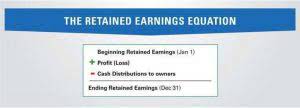
The primary tax season usually takes place during the first few months of the calendar year. Annual income taxes are based on the prior year’s income, which is why tax season starts around the beginning of the year. You might not be accounting for all of your income for the year if you start the filing process in December. But you might be able to confirm what you made for all of the tax year if you wait until January. WASHINGTON – The Internal Revenue Service (IRS) announced today that the nation’s tax season will start on Monday, January 24, 2022, when the tax agency will begin accepting and processing 2021 tax year returns. People should also remember that most income is taxable, including unemployment income, interest received or money earned from the gig economy or digital assets.

You should also opt to file electronically and choose direct deposit. You should ensure you have all of the right information to file a complete and accurate return and then submit the return early. If you request an extension, you’ll have until Oct. 15 to file your return. The Internal Revenue Service has announced it will tax season begin accepting tax returns on January 23—kicking off the 2023 tax season—and announced other key deadlines for the tax season. Keep in mind that your income tax withholding isn’t based on your marital status and withholding allowances any more. Instead, it’s now based on your expected filing status and standard deduction.
I’m a hybrid worker and worked from home for most of 2022. Can I claim a home office expense?
File a complete and accurate return electronically when ready and choose direct deposit for the quickest refund. The IRS said this gave the agency time to do more programming and testing of their systems following some end-of-2020 tax changes. There are various types of tax return preparers, including enrolled agents, certified public accountants, attorneys and some who don’t have a professional credential.
The due date is April 18, instead of April 15, because of the Emancipation Day holiday in the District of Columbia for everyone except taxpayers who live in Maine or Massachusetts. Taxpayers in Maine or Massachusetts have until April 19, 2022, to file their returns due to the Patriots’ Day holiday in those states. Taxpayers requesting an extension will have until Monday, October 17, 2022, to file.
Tips to make filing easier
Heads of household who haven’t yet celebrated their 65th birthday and make more than $18,800 will need to file. (It’s plunges to just $5 if you’re filing separately.) If you’re both OVER 65, that jumps to $27,800. And if one spouse is younger than 65 and one is older, it’s $26,450. People who are single and under the age of 65 who make $12,550 or above will need to file a return, according to the IRS. If, however, you work for yourself – and your income is in the form of 1099 statements instead of a W2 – you are able to write off the percentage of your home that you dedicate exclusively to work. IRS watchdog, the National Taxpayer Advocate, said earlier in January that “a light at the end of the tunnel” of the IRS’ customer service struggles is within sight as the agency hires thousands of new workers.
- The due date is April 18, instead of April 15, because of the weekend and the District of Columbia’s Emancipation Day holiday, which falls on Monday, April 17.
- The agency, by law, is required to use the extra time to prevent fraudulent refunds.
- There are important steps people can take to help ensure their tax return and refund are processed without delays.
- At the very least you should have general information, such as Social Security numbers, driver’s license information and the amount of estimated taxes paid during the year.
These steps took place as the IRS worked for months to prepare for the 2023 tax season. The January 23 start date for individual tax return filers allows the IRS time to perform annual updates and readiness work that are critical to ensuring IRS systems run smoothly. This is the date IRS systems officially begin accepting tax returns.
Most refunds issued in less than 21 days; EITC refunds for many available starting February 28
If you fail to file your federal tax return on time, the standard penalty is a whopping 5% of any tax due for every month the return is late, up to 25% of the unpaid balance. If you file a return but fail to pay any taxes you owe, or if you get an extension, you typically face a much smaller monthly penalty of 0.5% of any unpaid amount. This is the day when participating software companies will accept completed tax returns and hold them until they can be filed electronically with the IRS at the end of the month. IRS Free File Guided Tax Software, available only at IRS.gov, is available to any taxpayer or family with an adjusted gross income of $79,000 or less in 2023. If you fail to file your federal tax return on time, the standard penalty is a whopping 5% of any tax due for every month the return is late, up to 25% of the unpaid balance.
